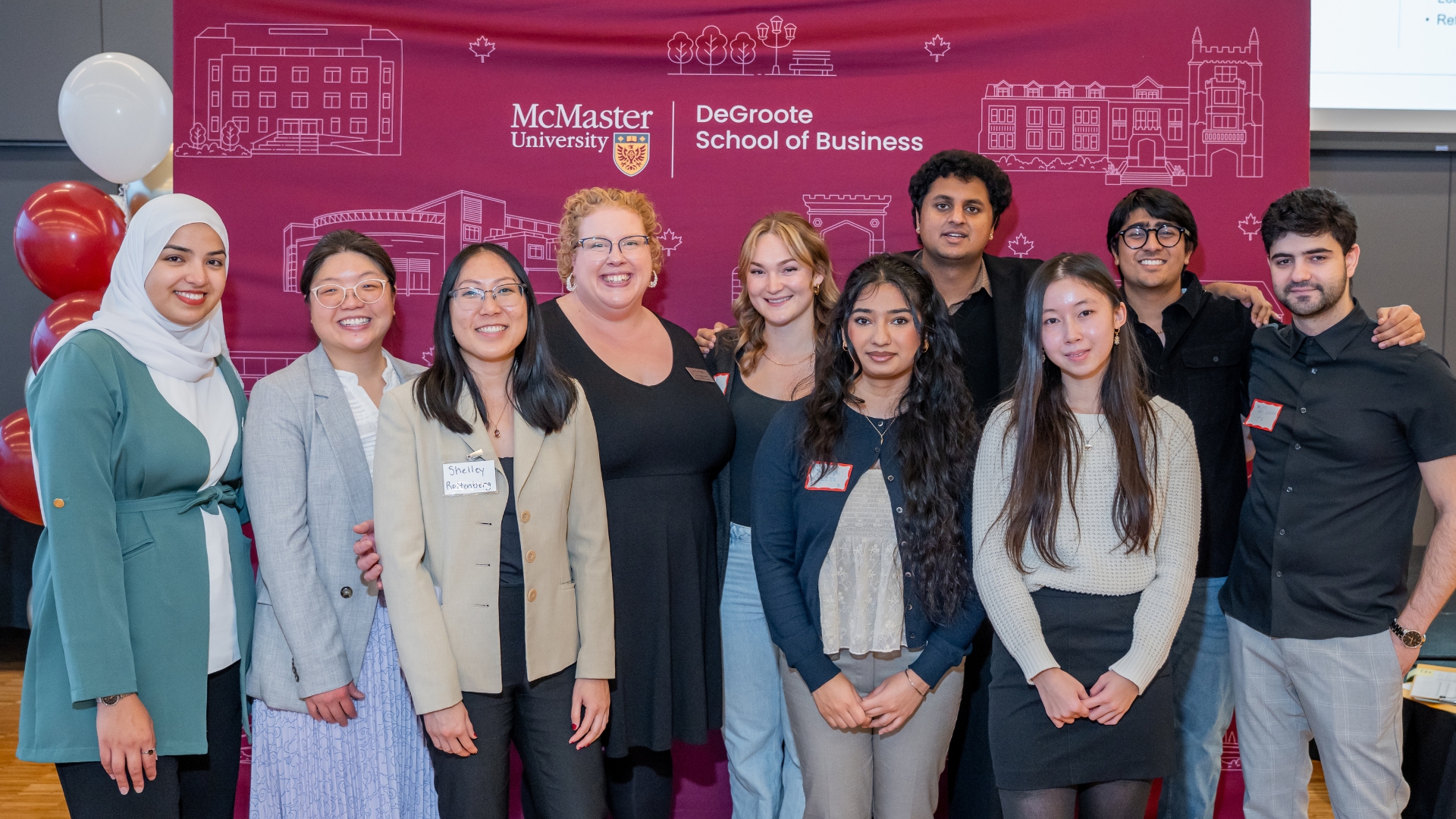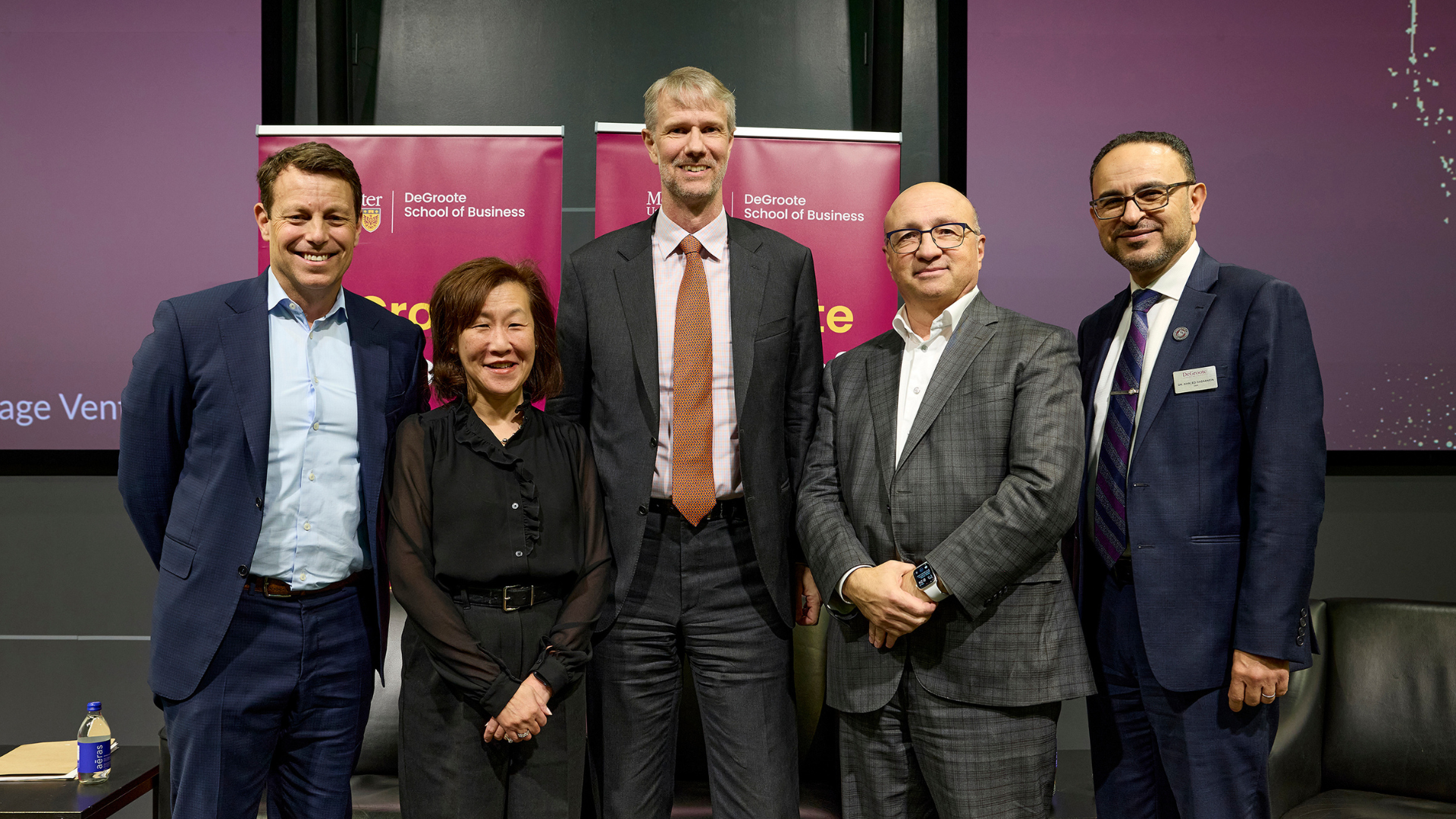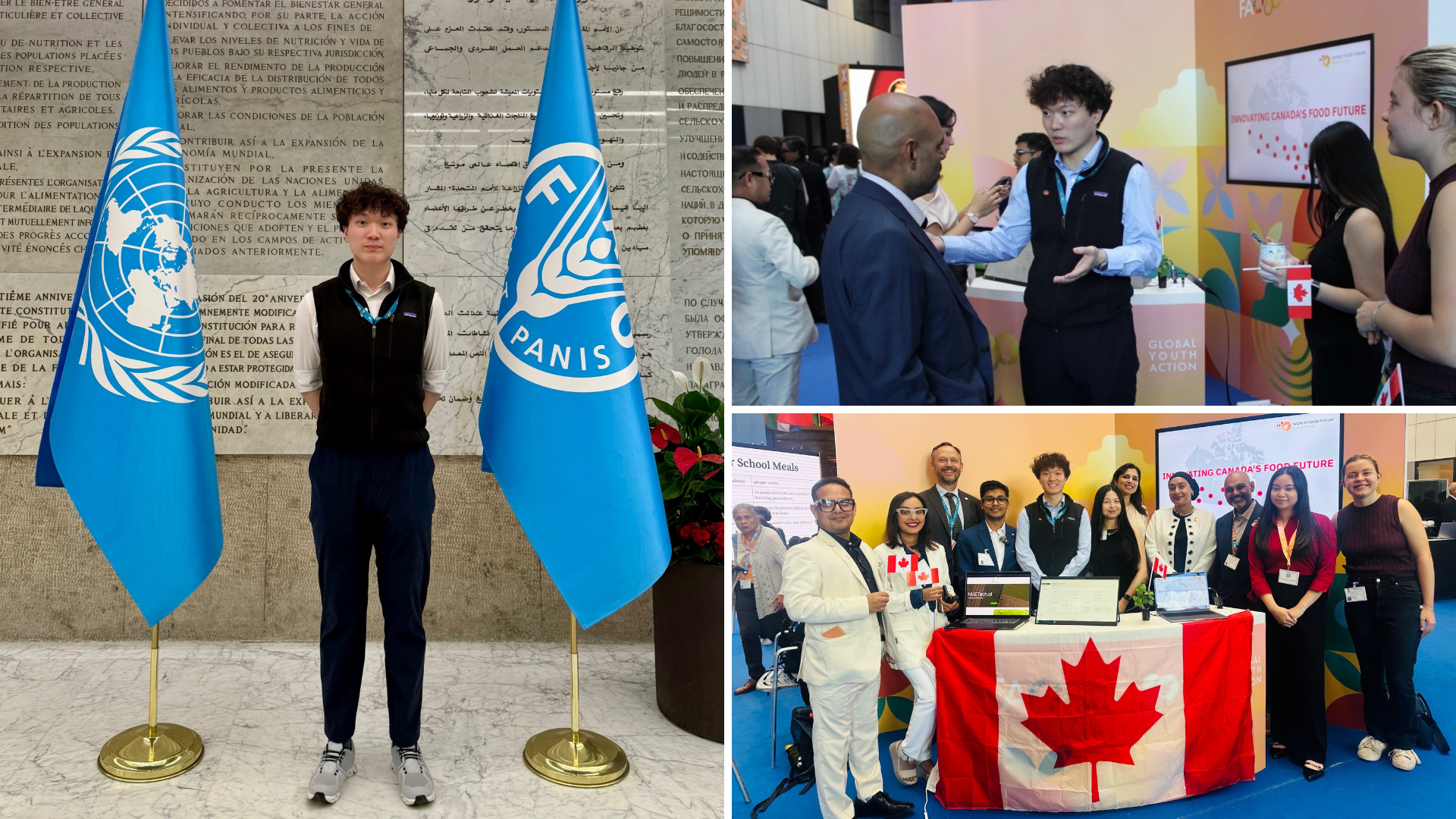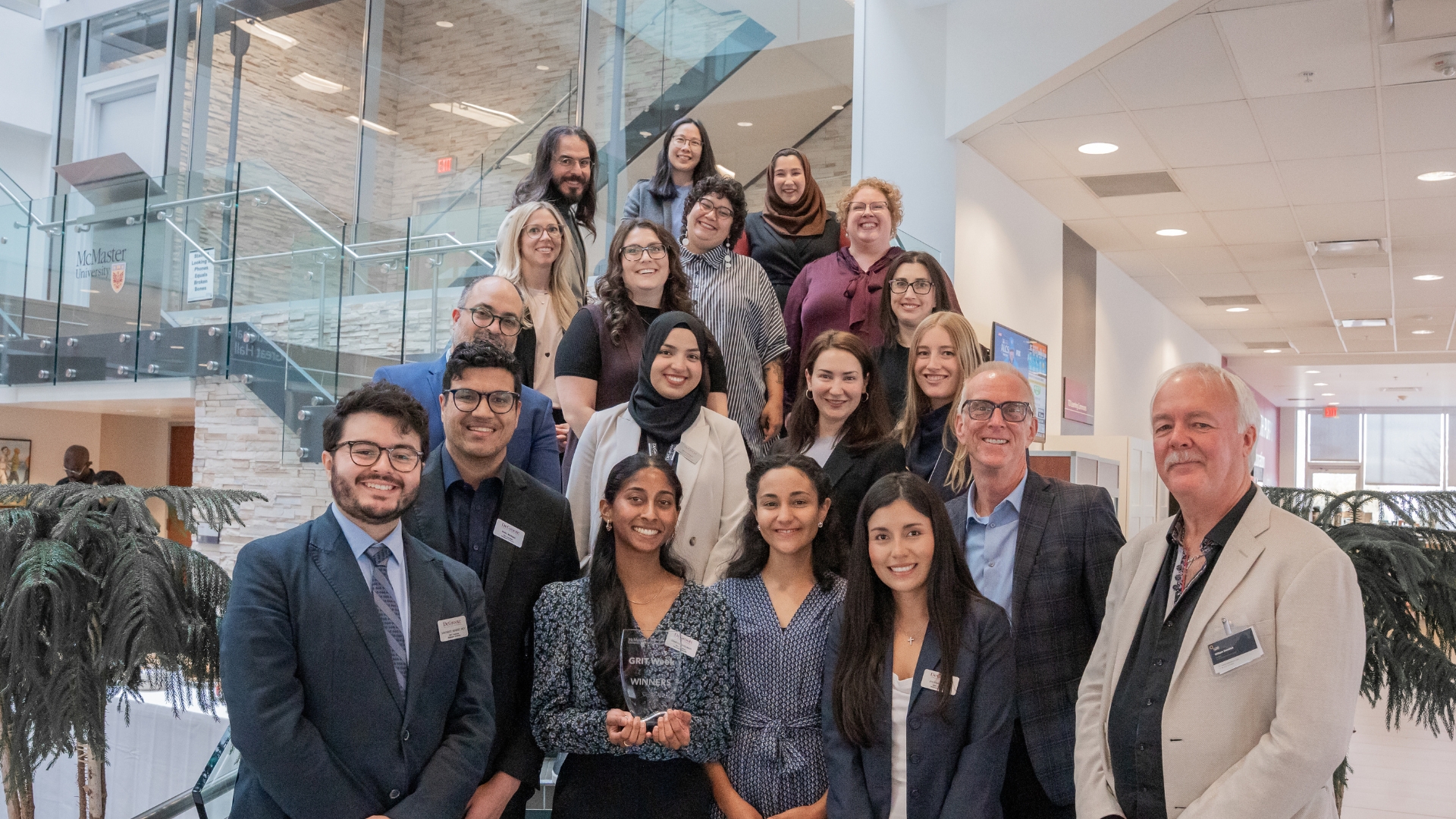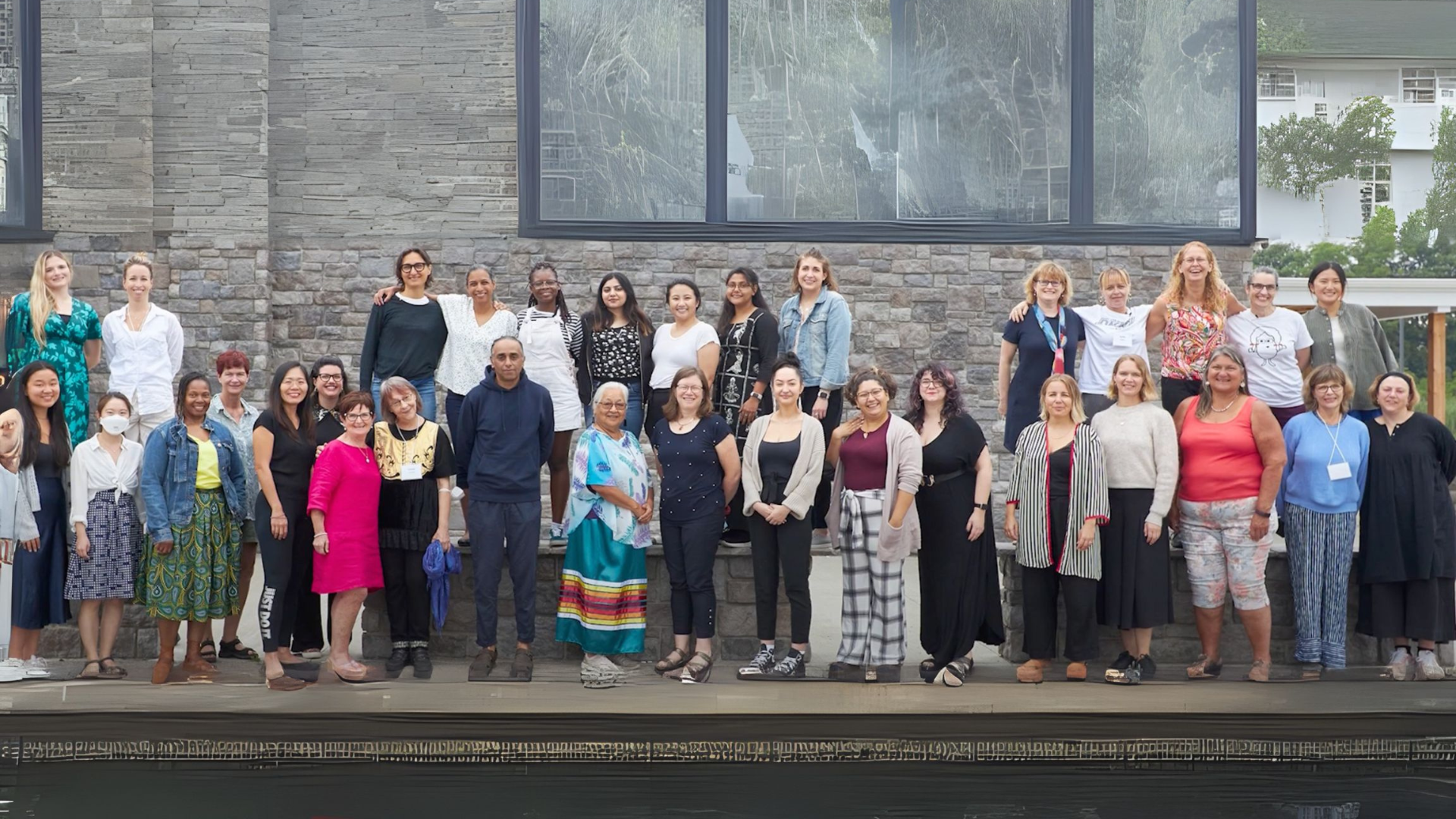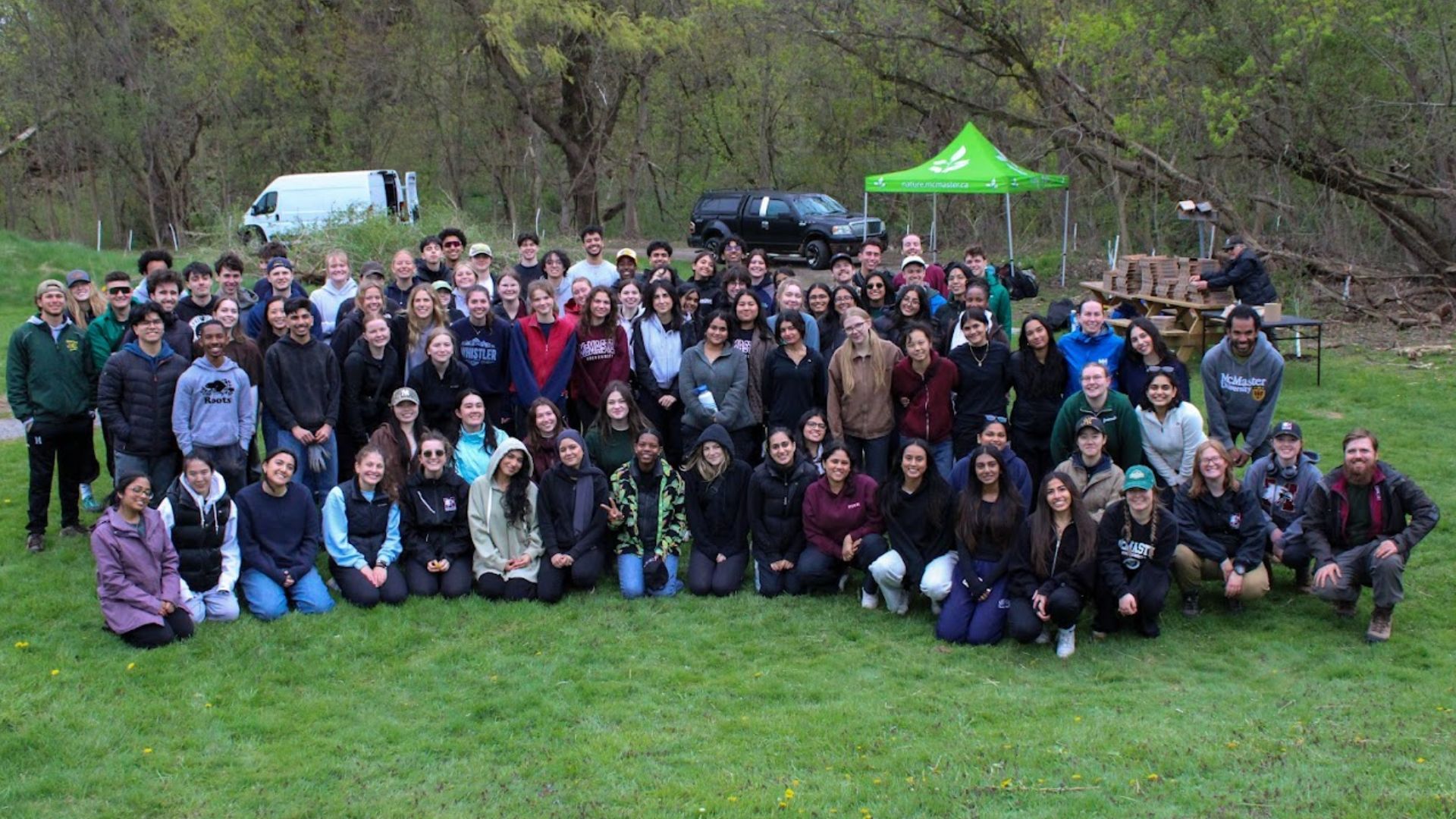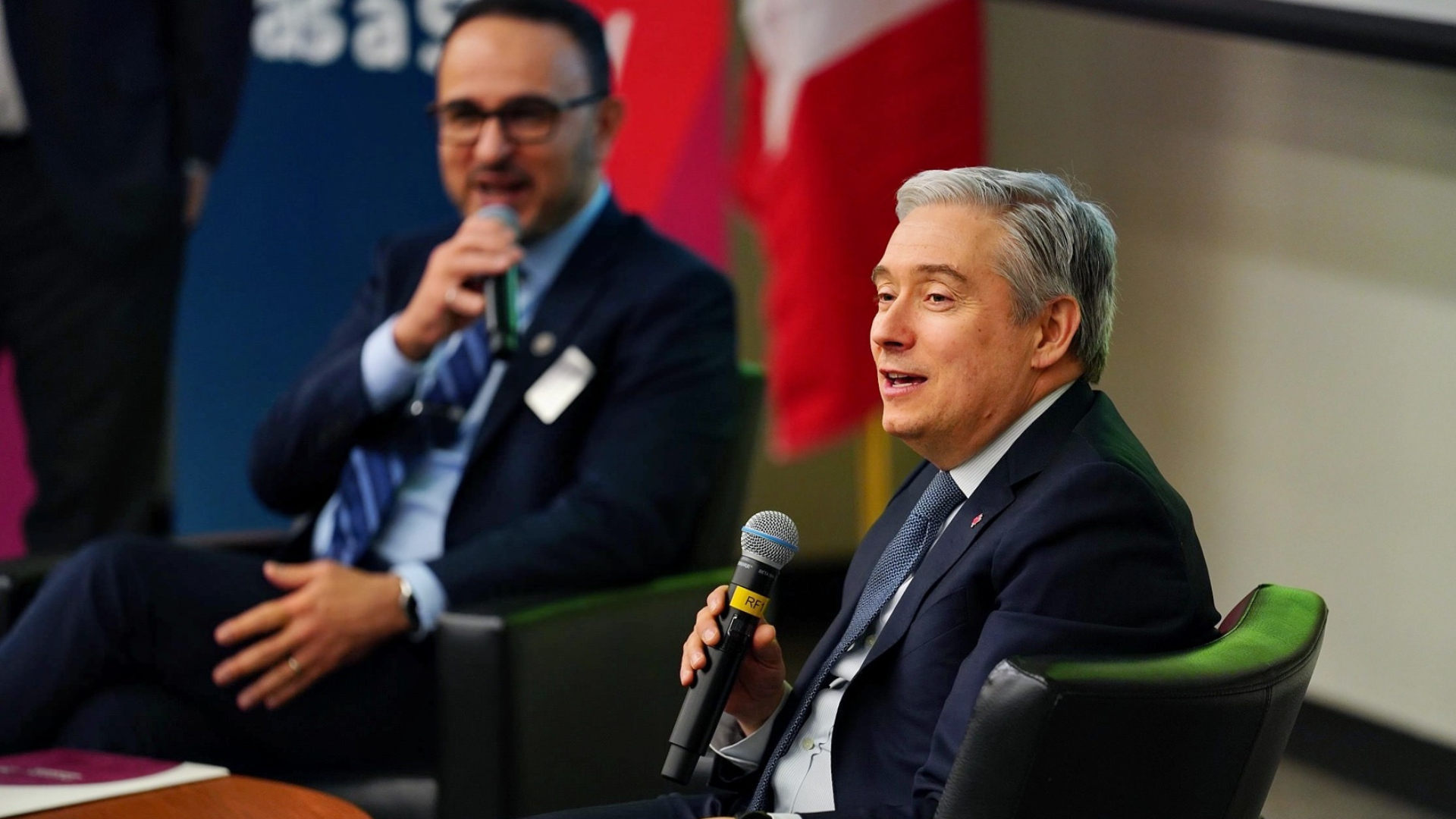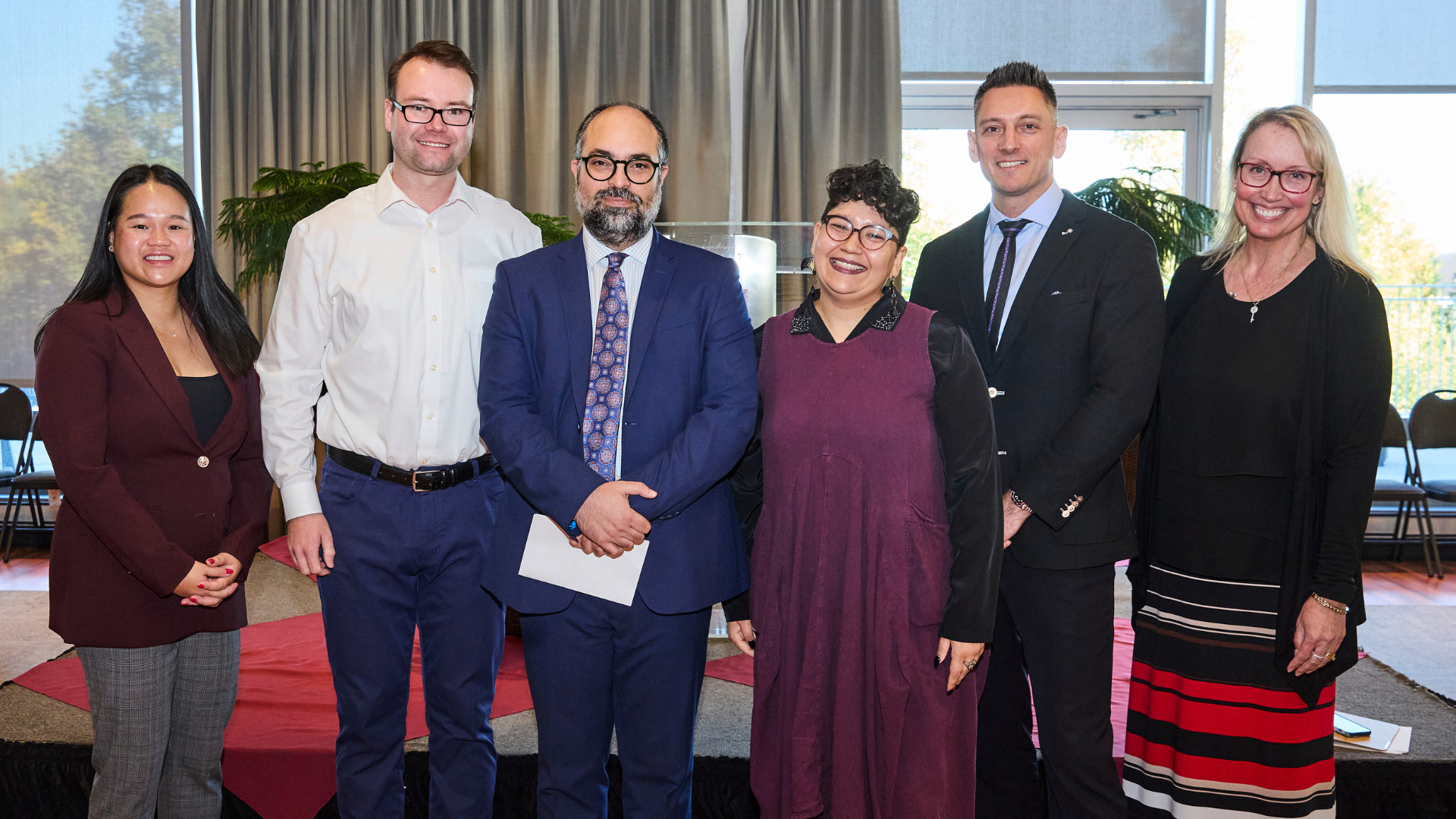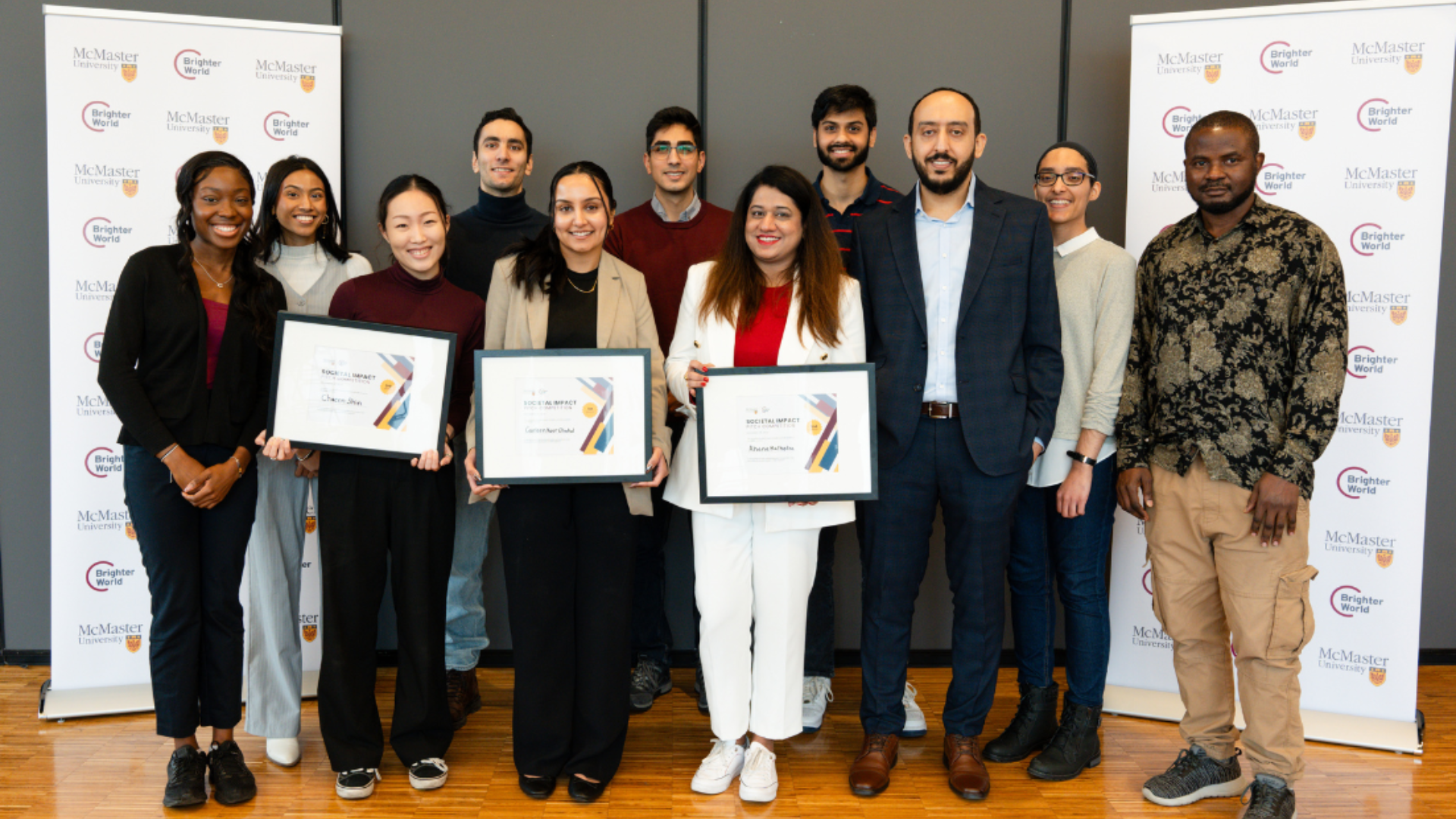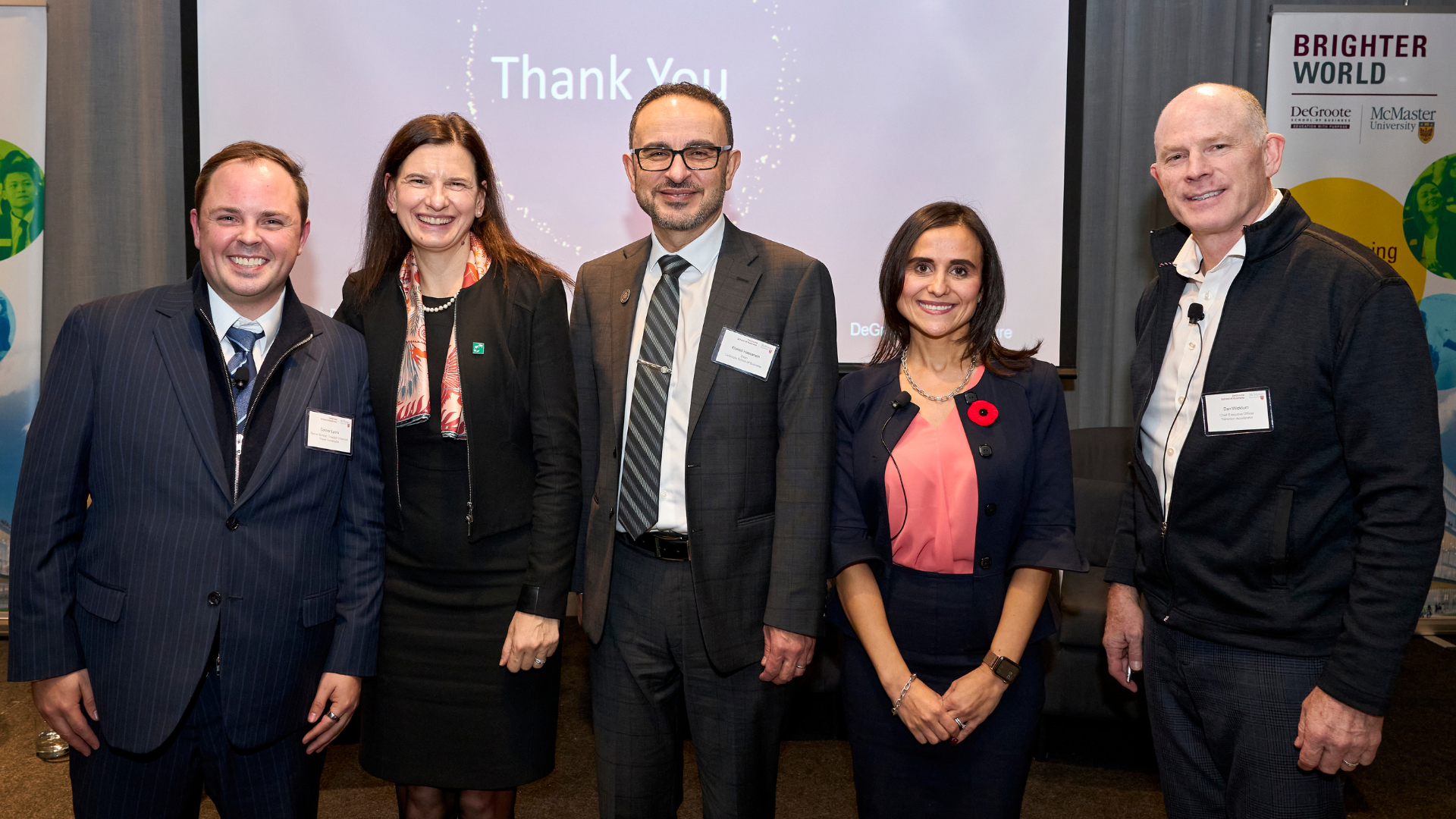FINANCE AND BUSINESS ECONOMICS OPERATIONS MANAGEMENT RESEARCH SOCIETAL IMPACT STRATEGIC MANAGEMENT STRATEGIC PLAN | RESEARCH AND SCHOLARSHIP
A new era for nuclear energy
October 31, 2025 ·
Contributed by: Julienne Isaacs
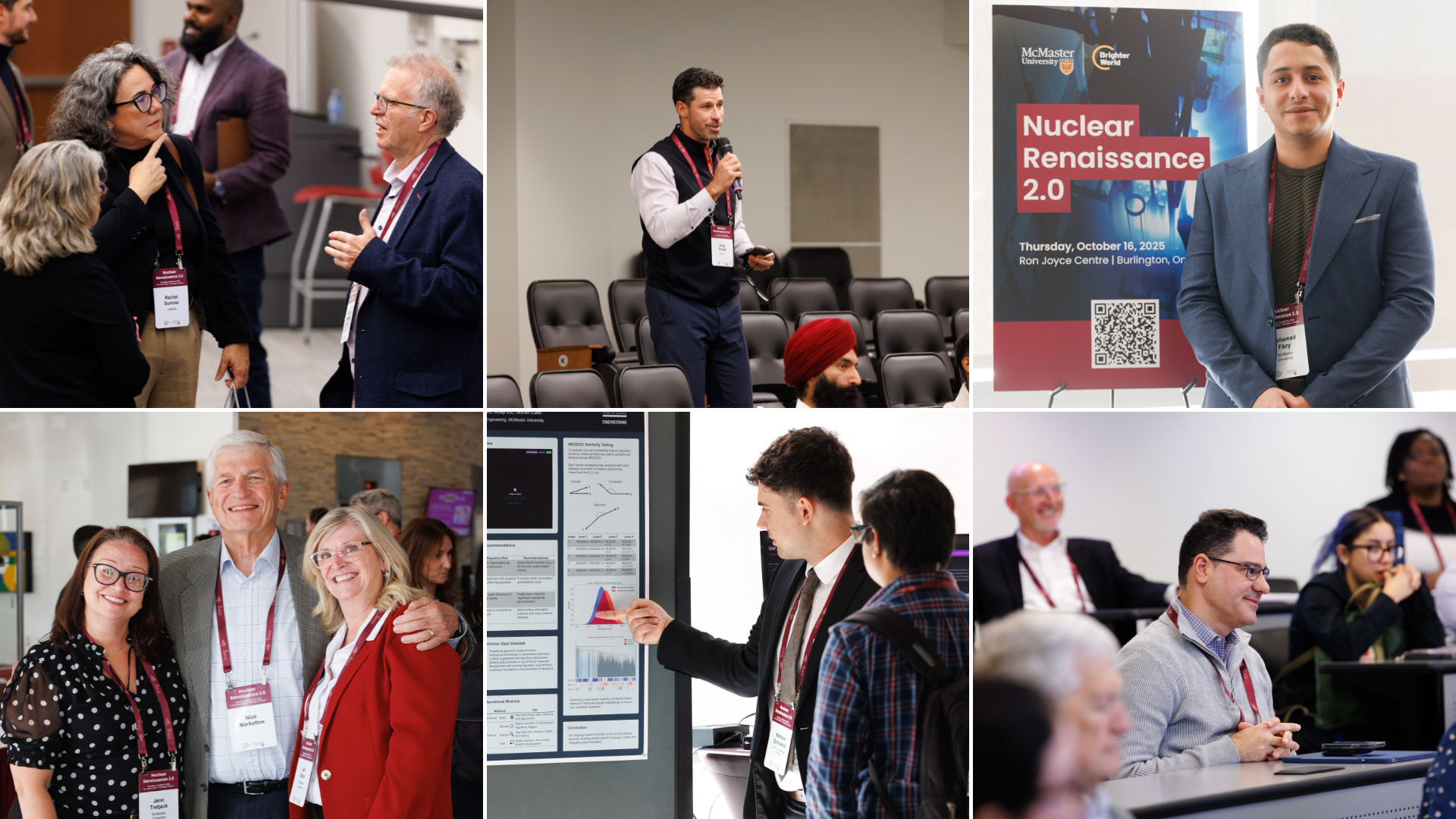
Canada is entering a new nuclear era.
That message came through loud and clear at McMaster University’s Nuclear Renaissance 2.0, held October 16 at the Ron Joyce Centre in Burlington.
The one-day conference brought together policymakers, industry leaders, researchers, Indigenous representatives and other stakeholders to explore Canada’s role in building a net-zero future.
Attendees joined a series of panels tackling enablers of nuclear deployment including investment models, Indigenous energy sovereignty, workforce training and resilient supply chains.
“Renaissance isn’t a term that we take lightly in the industry, but certainly it is one that is fitting right now,” said Aida Cipolla, CFO and CAO for Ontario Power Generation, the event sponsor, during her keynote address.
“Around the world, we are seeing a shift of attitudes and policies towards nuclear power. Countries are now looking at how to deploy reactors, big and small, and to decarbonize their electrification systems.”
And, she said, they’re looking to Canada — and McMaster — to train the nuclear workforce and provide essential research and innovation.
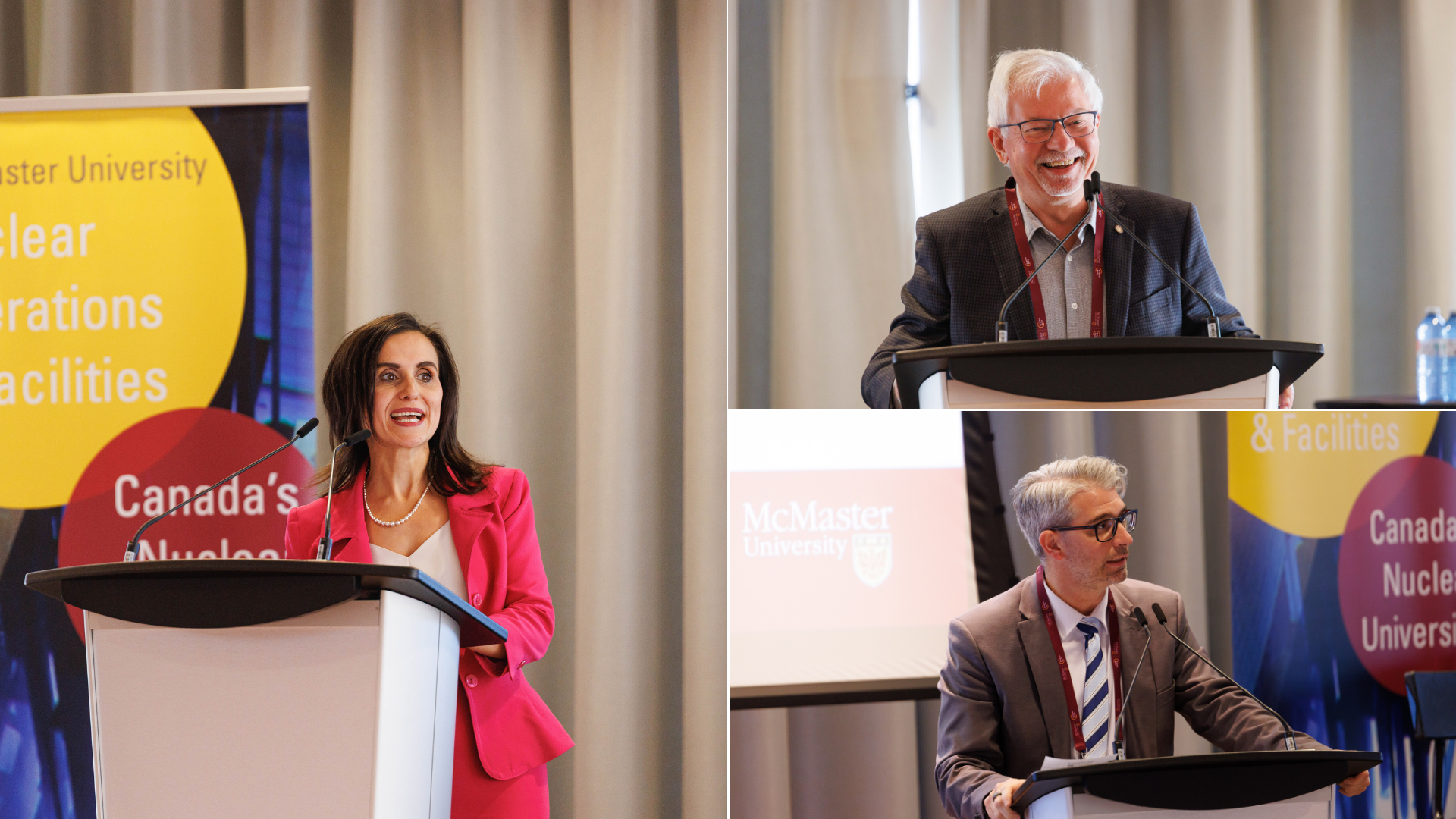
Aida Cipolla; John Preston; Gianni Parise
As Canada’s nuclear university, McMaster is home to the country’s largest research reactor and world-class research facilities focused on clean energy, materials and health research. The McMaster Nuclear Reactor is one of the world’s largest suppliers of medical isotopes used in treatment for more than a million cancer patients globally. This spring, the provincial government announced a $15.5 million investment to expand the reactor’s operations.
But McMaster’s nuclear leadership isn’t confined to just a few areas: it necessarily spans industries.
In his welcome remarks, Khaled Hassanein, dean of the DeGroote School of Business, noted that the path to net-zero is not just a technological challenge but an economic one.
“To unlock its full potential, we must address the financial and market realities that underpin its effective deployment,” said Hassanein. “This means de-risking long-term investments in nuclear infrastructure, aligning regulatory frameworks with viable business models, and building investor confidence in a sector that is still often misunderstood.”
These challenges are best solved through interdisciplinary research and discussion, he added.
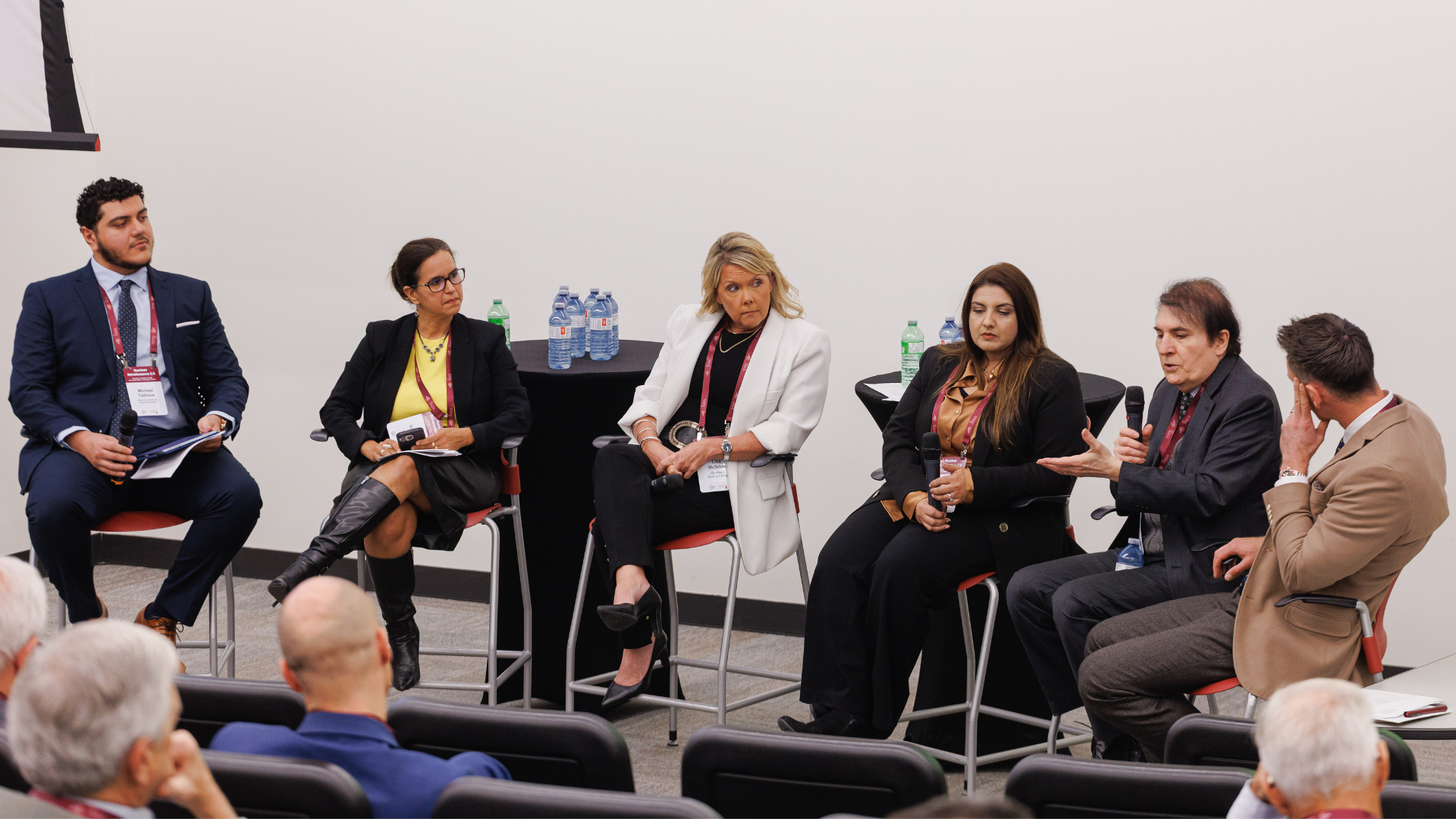
Energy Transition Panel, L-R: Michael Tadrous (McMaster); Ivette Vera-Perez (Organization of Canadian Nuclear Industries); Lisa McBride (GE Hitachi Nuclear Energy); Sonia Qureshi (Conexus Nuclear); Bijan Alagheband (Hydro One); and Goran Calic (McMaster)
Educating tomorrow’s nuclear leaders
Common themes and questions threaded through the day’s discussions.
How will we pay for small modular reactors (SMRs)? How can we create a responsible, sustainable way forward? And how will we train leaders of the nuclear renaissance?
The growing need for skilled workers was discussed at a panel focused on the energy transition, moderated by DeGroote associate professor of Strategy Goran Calic. It came up during a panel on Indigenous partnerships, during which moderator Mark Hill, principal partner with Rezolve Strategies and former Chief of Six Nations of the Grand River, spoke about the need to provide Indigenous youth with opportunities to access the nuclear industry. And it was explored during a session on sustainable supply chains, which touched on Canada’s need to build its own industrial capacity, regulatory capability and nuclear workforce.
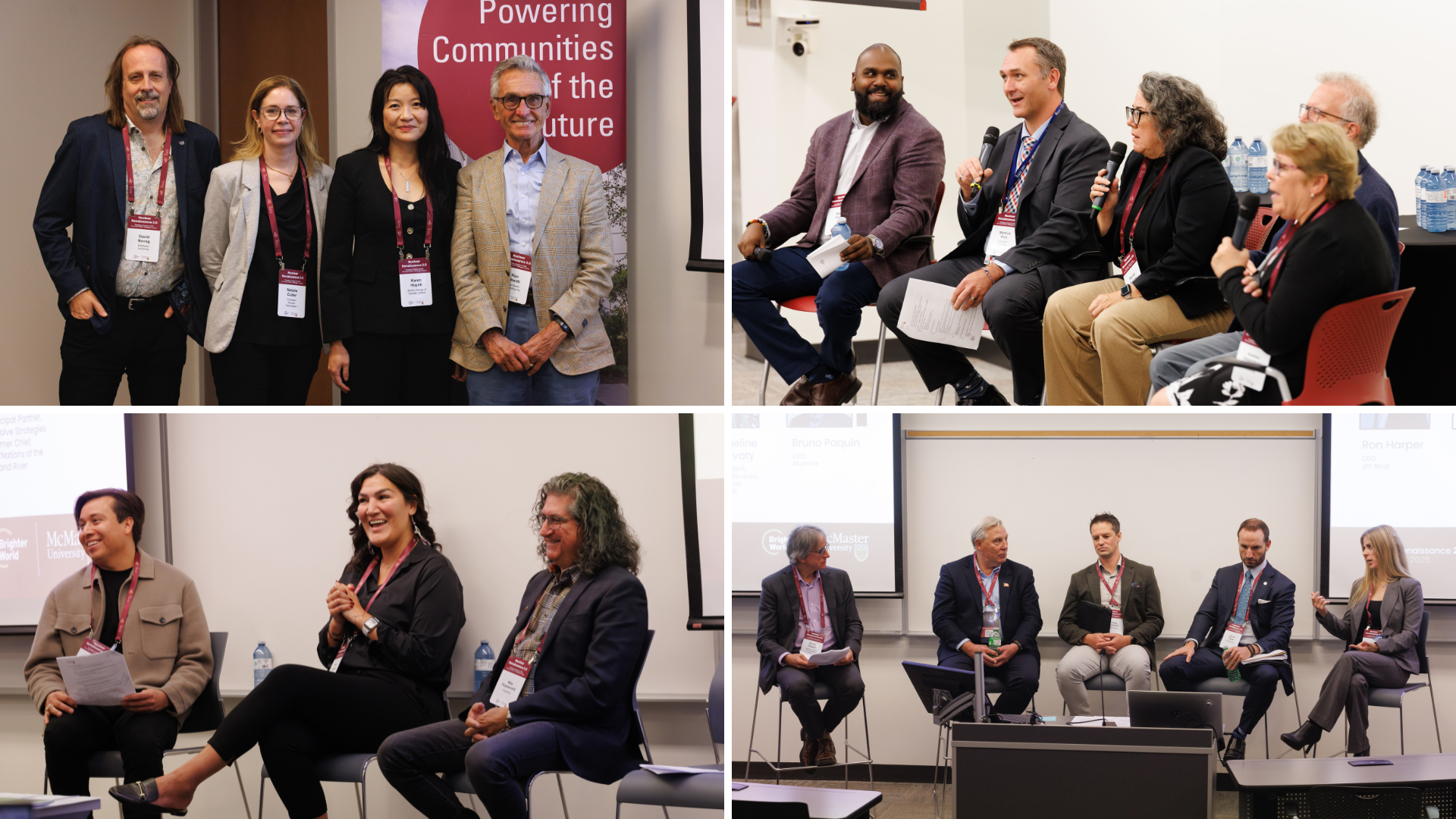
- Public Policy panel, L-R: David Novog (McMaster); Natalie Cutler (Canadian Nuclear Association); Karen Huynh (Atomic Energy of Canada Ltd.); and Ron Oberth (RonOberth Consulting Inc.)
- Workforce Training panel, L-R: Mario Pieries (Hatch Ltd.); Markus Piro (McMaster); Rachel Sumner and Jerry Hopwood (UNENE); and Heather Sheardown (McMaster)
- Sustainable Supply Chain panel, L-R: Bruno Paquin (AtomVie); Ron Harper (JFE Shoji Power Canada); Craig Johnson (Candu Inc.); David Tanel, (Westinghouse); and Jacqueline Cherevaty (BWX Technologies, Inc.)
- Indigenous Partnerships panel, L-R: Mark Hill (Rezolve Strategies); Skye Anderson (OPG); and Mike Ruysseveld (Kinectrics)
The question of how to staff the nuclear renaissance was also central to a panel on workforce training, moderated by Heather Sheardown, dean of the Faculty of Engineering at McMaster. The panel featured UNENE president Jerry Hopwood and director Rachel Sumner, as well as Markus Piro, an associate professor of Engineering Physics at McMaster, and Mario Pieries, associate and global director for Nuclear at Hatch.
The speakers agreed that the need to quickly scale up the nuclear workforce — including nuclear scientists and engineers, as well as skilled tradespeople and technicians — is a challenge that academia and industry must solve together.
“From the industry perspective, there is a shortage of nuclear experience and know-how,” said Pieries.
McMaster is uniquely poised to meet this need. Between 3,000 and 5,000 McMaster alumni work in the industry worldwide, and the university currently hosts 600 students studying nuclear across science, engineering and business, said John Preston, associate vice-president for Nuclear at McMaster. Within three years that number will double, he added.
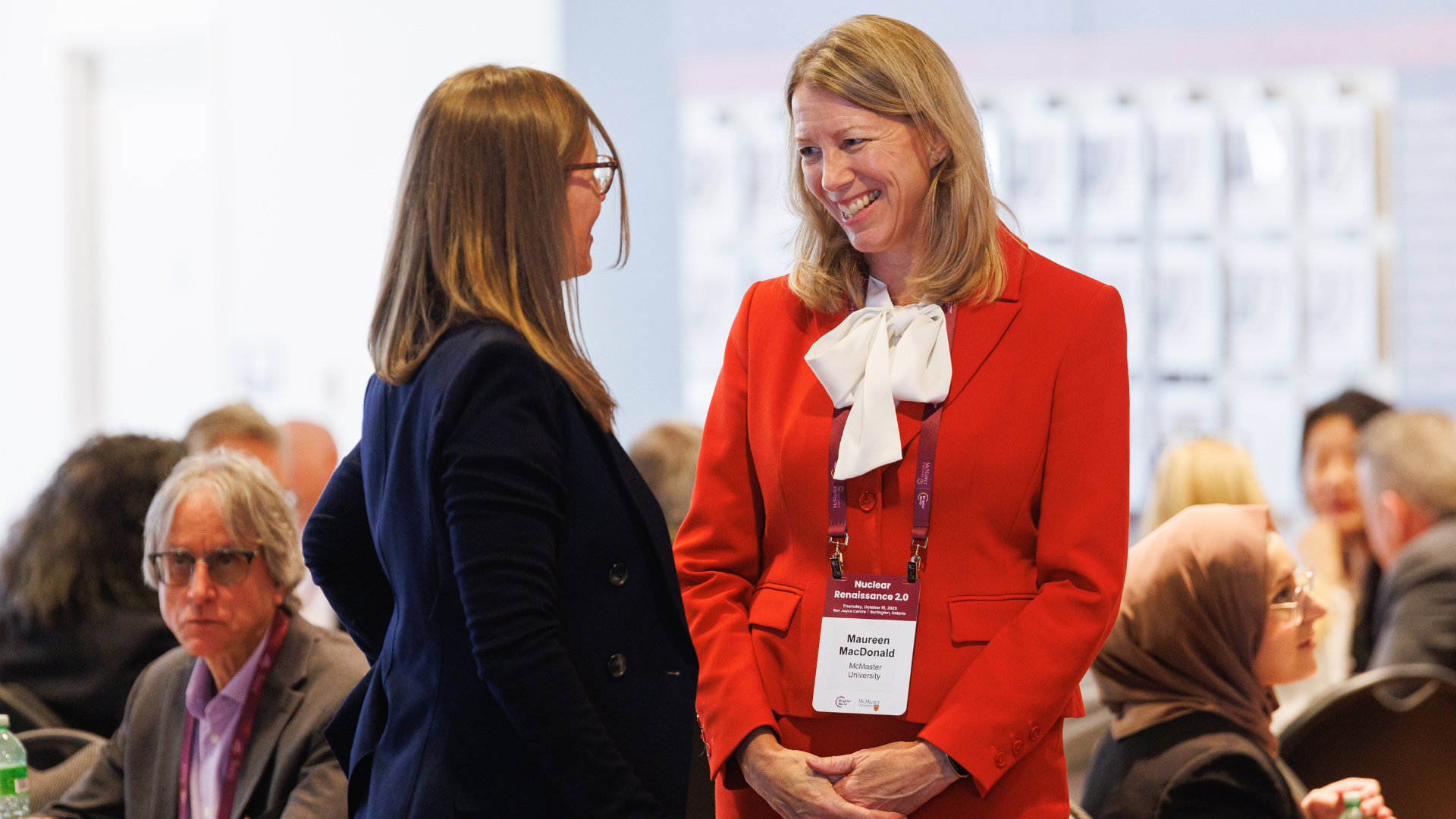
Maureen MacDonald, provost and vice-president (Academic) at McMaster University speaks with keynote speaker Karina Gould, Member of Parliament for Burlington, Ont.
During his closing keynote address, Gianni Parise, vice-president for Research at McMaster, spoke about the university’s pioneering work across the research landscape, from AI-driven reactor diagnostics to isotope production to materials research.
McMaster’s research, he added, is not confined to labs, but embedded in partnerships, policy and practice.
“This conference is just the beginning. In the months ahead, we will be launching new research initiatives, deepening our partnerships, and continuing to convene thought leaders across sectors,” said Parise.
As Canada enters a new nuclear era, collaborations across sectors — and ongoing conversations between government, industry, academia, Indigenous communities and the public — will be critical to establish nuclear energy not just as a climate solution but a cornerstone of economic resilience.
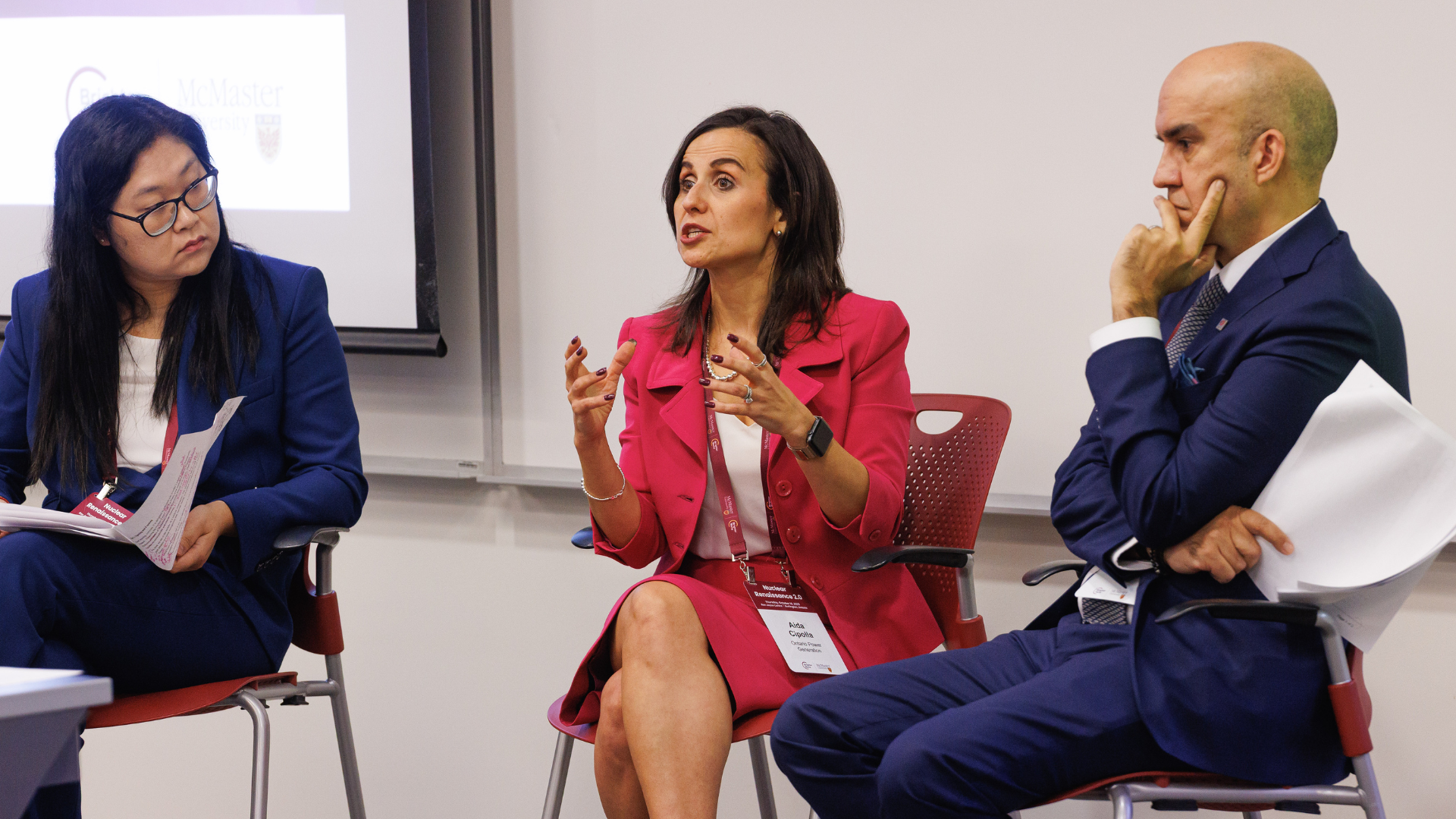
L-R: Rui Duan (McMaster); Aida Cipolla; and Shariq Alvi (CIBC Capital Markets)


